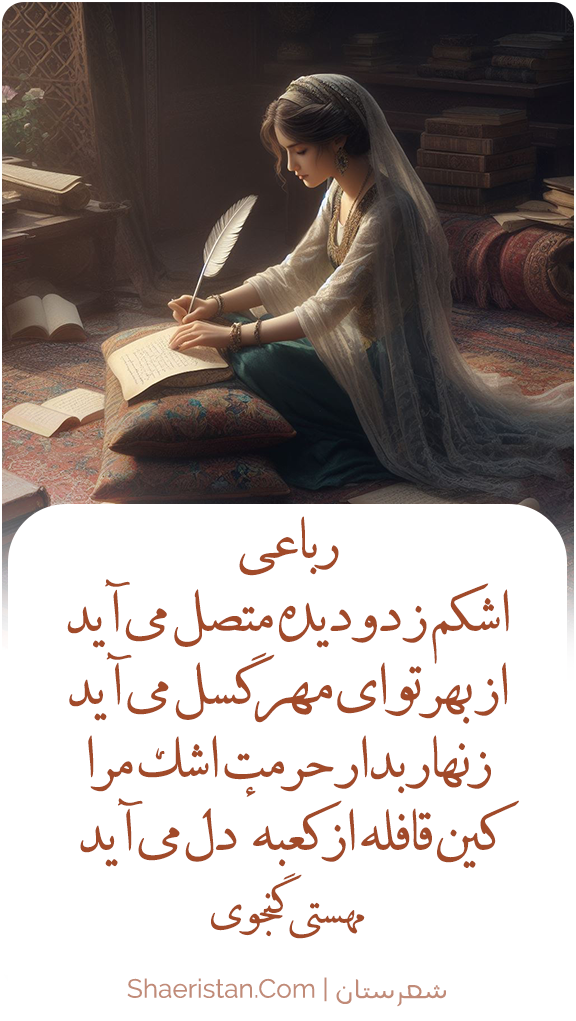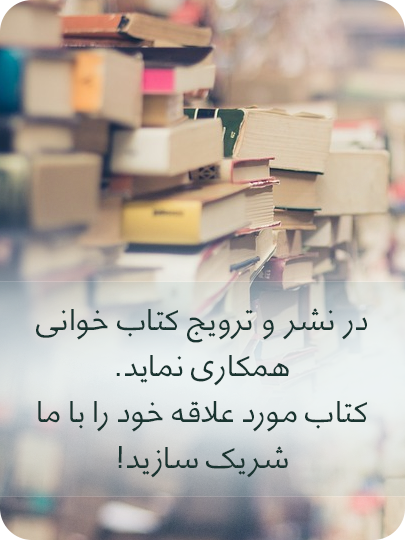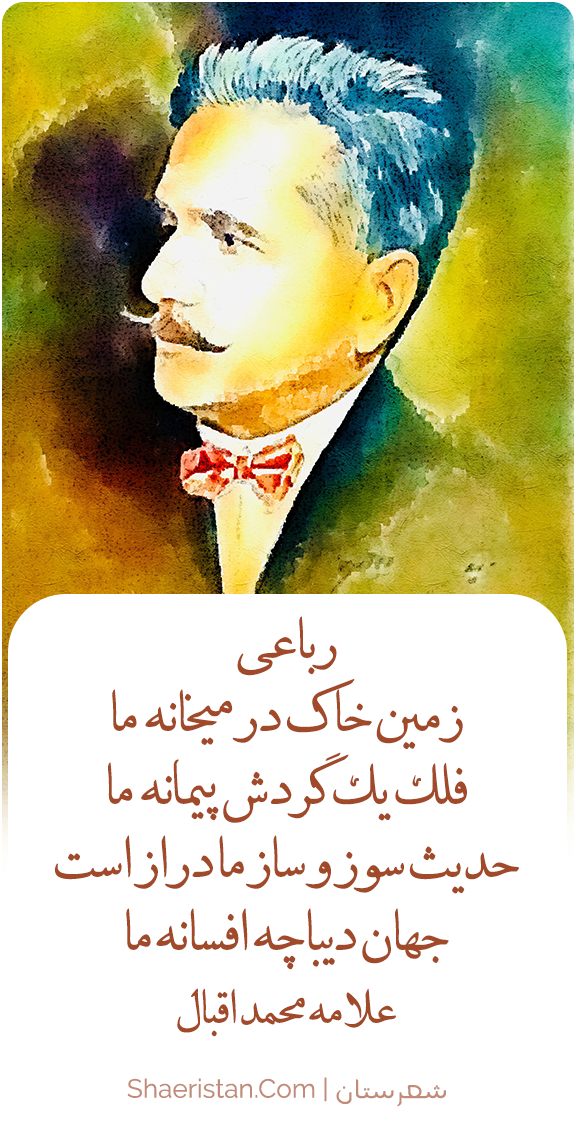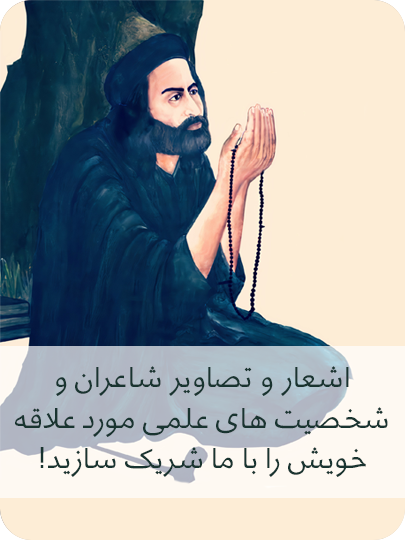Someone said: “There is something I have forgotten.”
Rumi replied: There is one thing in this world that must never be forgotten. If you were to forget all else, but did not forget that, then you would have no reason to worry. But if you performed and remembered everything else, yet forgot that one thing, then you would have done nothing whatsoever.
It is just as if a king sent you to the country to carry out a specific task. If you go and accomplish a hundred other tasks, but do not perform that particular task, then it is as though you performed nothing at all. So, everyone comes into this world for a particular task, and that is their purpose. If they do not perform it, then they will have done nothing.
All things are assigned a task. The heavens send rain and light for the herbs of the field to germinate and spring into life. The earth receives the seeds and bears fruit, it accepts and reveals a hundred thousand marvels too numerous to tell. The mountains give forth mines of gold and silver. All these things the heavens, the earth and the mountains do, yet they do not perform that one thing; that particular task is performed by us.
“We offered the Trust to the heavens,
The earth and the mountains,
They refused to carry it and were afraid of it,
But humans carried it.
Surely they are foolish and sinful.”
So, people are given a task, and when they perform it all their sinfulness and foolishness is dissolved.
You say, “Look at all the work I do accomplish, even if I do not perform that task.” You weren’t created for those other tasks! It is just as if you were given a sword of priceless Indian steel, such as can only be found in the treasuries of kings, and you were to treat it as a butcher’s knife for cutting up putrid meat, saying, “I am not letting this sword stand idle, I am using it in so many useful ways.” Or it is like taking a solid gold bowl to cook turnips in, when a single grain of that gold could buy a hundred pots. Or it is as if you took a Damascene dagger of the finest temper to hang a broken gourd from, saying, “I am making good use of it. I am hanging a gourd on it. I am not letting this dagger go to waste.” How foolish that would be! The gourd can hang perfectly well from a wooden or iron nail whose value is a mere farthing, so why use a dagger valued at a hundred pounds?
A poet once said:
You are more precious than heaven and earth.
What more can I say?
You do not know your own worth.
God says, “I will buy you…your moments, your breaths, your possessions, your lives. Spend them on Me. Turn them over to Me, and their price is divine freedom, grace and wisdom. This is your worth in My eyes.” But if we keep our life for ourself, then we lose what treasures we have been granted. Like the person who hammered the dagger, worth a hundred pounds into the wall to hang a gourd upon, their great fortune was reduced to a nail.
Still you offer another excuse, saying, “But I apply myself to lofty tasks. I study law, philosophy, logic, astronomy, medicine and the rest.” Well, for whose sake but your own do you study these? If it is law, it is so nobody can steal a loaf from you, strip you of your clothes, or kill you – in short, it is for your own security. If it is astronomy, the phases of the spheres and their influence upon the earth, whether they are light or heavy, portending tranquility or danger, all these things are concerned with your own situation, serving your own ends. If it is medicine, it is related to your own health and also serves you. When you consider this matter well, the root of all your studies is yourself. All these lofty tasks are but branches of you.
If these subjects are filled with so many marvels and worlds of knowledge without end, consider what worlds you pass through who are the root! If your branches have their laws, their medicines, their histories, think of what transpires within you who are the source; what spiritual laws and medicines affect your inward future and fate, what histories portray your struggles of the heart!
For Soul there is other food besides this food of sleeping and eating, but you have forgotten that other food. Night and day you nourish only your body. Now, this body is like a horse, and this lower world is its stable. The food the horse eats is not the food of the rider. You are the rider and have your own sleeping and eating, your own enjoyment. But since the animal has the upper hand, you lag behind in the horse’s stable. You cannot be found among the ranks of kings and princes in the eternal world. Your heart is there, but since your body has the upper hand, you are subject to its rule and remain its prisoner.
When Majnun, as the story goes, was making for his beloved Laila’s home, as long as he was fully conscious he drove his camel in that direction. But when for a moment he became absorbed in the thought of Laila and forgot his camel, the camel turned in its tracks toward the village where its foal was kept. On coming to his senses, Majnun found that he had gone back a distance of two day’s journey. For three months he continued this way, coming no closer to his goal. Finally he jumped off the camel, saying, “This camel is the ruin of me!” and continued on foot, singing:
My camel’s desire is now behind,
My own desire is before.
Our purposes were crossed,
We can agree no more.
Burhan al-Din was once greeted by someone, who said, “I have heard praises of you sung by friends.” Burhan al-Din answered, “Wait until I meet your friends to see whether they know me well enough to praise me. If they know me only by word of mouth, then they do not truly know me. For words do not endure. Syllables and sounds do not endure. This body, these lips and this mouth will not endure. All these things are mere accidents of the moment. But if they know me by my works, and they know my essential self, then I know they are able to praise me, and that praise will go where it belongs.”
This is like the story they tell of a certain king. This king entrusted his son to a team of learned scholars. In due course, they taught him the sciences of astrology, geomancy, and the interpretation of signs, until he became a complete master, despite his utter stupidity and dullness of wit.
One day the king took a ring in his fist and put his son to the test.
“Come, tell me what I am holding in my fist.”
“What you are holding is round, yellow, inscribed and hollow,” the prince answered.
“You have given all the signs correctly,” the king said. “Now say what it is.”
“It must be a sieve.” the prince replied.
“What?” cried the king. “You know all the minute details, which would baffle the minds of anyone. How is it that out of all your powerful learning and knowledge, the small point has escaped you that a sieve will not fit in a fist?”
In this same way, the great scholars of the age split hairs on details of all matters. They know perfectly and completely those sciences that do not concern Soul. But as for what is truly of importance and touches us more closely than anything else, namely our own Self, this your great scholars do not know. They make statements about everything, saying, “This is true and that is not true. This is right and that is wrong.” Yet, they do not know their own Self, whether it is true or false, pure or impure.
Now being hollow and yellow, inscribed and circular, these features are accidental; cast the ring into the fire and none of them will remain. It becomes its essential self, purified of all appearances. So it is with the knowledge of scholars; what they know has no connection with the essential reality that alone exists when all these “signs” are gone. They speak wisely, expound at great length, and finally pronounce that what the king has in his hand is a sieve. They have no knowledge about the root of the matter: life’s purpose.
I am a bird. I am a nightingale. If they say to me, “Make some other kind of sound,” I cannot. My tongue is what it is. I cannot speak otherwise. However, those who learn the song of birds are not birds themselves – on the contrary, they are the enemies of birds and their captors. They sing and whistle so others will take them for birds. Ask them to produce a different sound and they can do so, because that sound is merely assumed by them. It is not truly their own. Like the scholars, they are able to sing other songs because they have learned to rob those songs, and to show off a different tune stolen from every breast.






